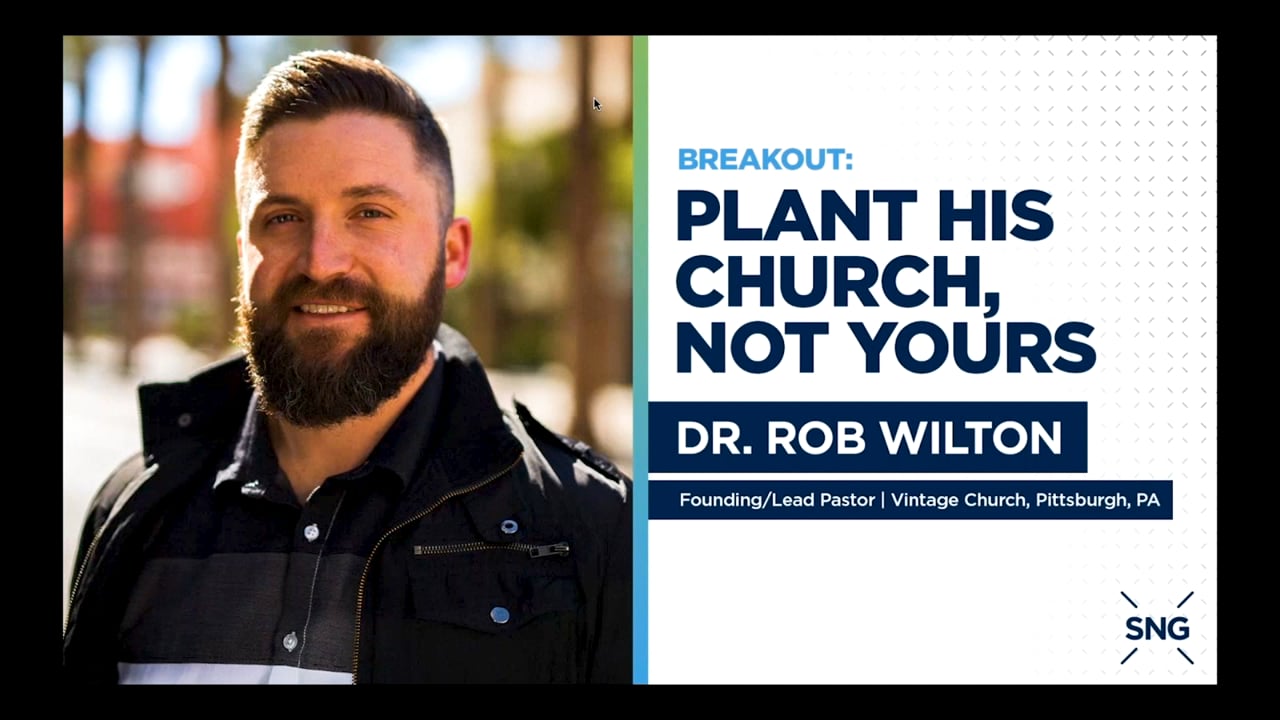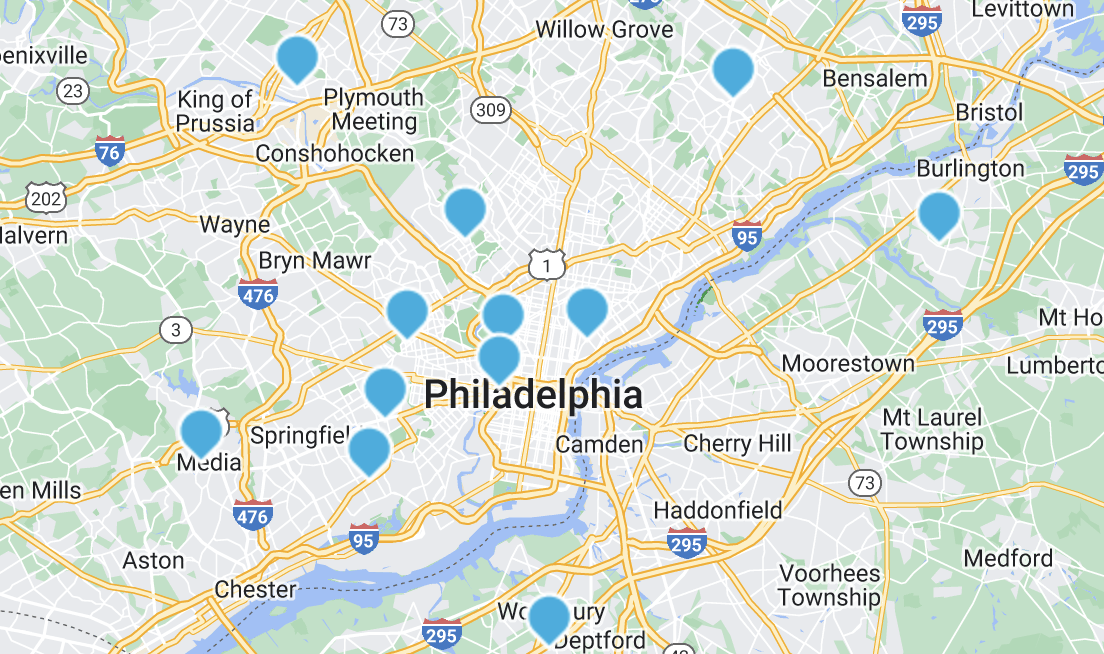Rob Wilton may not be a household name to Southern Baptists. But he’s been given nine houses by a Southern Baptist Convention mission board, as documented by public records.
Wilton comes from a legacy family within the SBC, which might explain why he has been entrusted with such riches allegedly for church planting — including a custom-built house for him in a gated community near Pittsburg.
This Southern Baptist pastor is the ultimate illustration of one of the SBC North American Mission Board’s most controversial financial practices — investing in about $100 million of residential real estate nationwide as part of its church planting strategy.

Wilton works as the church planting pastor at Vintage Church in Pittsburg and is founder of the Vintage Church Network, which advertises churches in suburban New Orleans and in Pittsburgh. He’s also a NAMB Send City missionary — a Send Network employee whose role is to ensure the planters/plants have every opportunity to be healthy — who works with pastors and other church leaders to introduce them to active church planters and help them come alongside specific church plants as a supporting church.
Before moving to Pittsburg, Wilton made a name for himself in New Orleans fighting against the city’s morning noise ordinance. When residents complained about the noise generated by his Sunday morning church services in the French Quarter, he claimed his First Amendment rights allowed him to violate the ordinance.
After leaving that work, Wilton moved to Pittsburg to start another church, through the Prestonwood Network, Longhollow Network and his own network. Within the SBC and around the SBC there are various church-planting networks that supplement the work of pastors called to church planting as a ministry.
NAMB officials said church planters who worked with support from multiple networks would receive less NAMB funding, yet Wilton got something no other church planter appears to have obtained: Eight homes for use by Wilton’s church and a new custom home for himself — a property located in a gated community nearly 30 minutes away from his inner-city church.
Again, according to public records, the nine houses entrusted to Wilton’s care are together valued at $2,377,300.

Rob Wilton (left) with Kevin Ezell at a NAMB event in 2019. (Baptist Press photo)
Send Cities
To understand why this might have been done, begin with the basics of NAMB’s church planting strategy called Send Cities.
NAMB has identified work in 35 focus areas — 31 “Send Cities” and two strategic areas of South Florida and Puerto Rico as well as collegiate communities and military communities.
Send City missionaries are appointed to coordinate church planting work in these areas. These missionaries work with both potential church planting pastors and with churches that want to support the work.
Wilton is one of those Send City missionaries.
Another perceived problem is that property records show NAMB began buying real estate outside its Send Cities targets — in places like Iowa and Oklahoma — and giving those houses to megachurch network staff members and trainees near megachurches outside of the Send Cities.
This practice was called out specifically by 2021 SBC presidential candidate Randy Adams, who also is a state convention executive director in the Northwest. A newspaper handout given to convention messengers that year detailed many of the same facts as reported in this article.

Places around Philadelphia where NAMB says it has church plants.
Why real estate?
Real estate enters the equation because in many of the strategic areas for church planting, housing costs are prohibitive for missionaries and church planters to live without assistance. Thus, NAMB announced a strategy of purchasing homes in these strategic areas and allowing church planters and their families to live there.
How these missionaries report their free housing as income is not known. According to IRS regulations, ministers who live in parsonages or employer-owned housing must report as income the fair-market rental price of their “free” housing.
NAMB President Kevin Ezell has said owning all this real estate is not only a good use of the SBC’s money but is a good investment for the future. In a recent interview with Benjamin Cole (the Baptist Blogger) on Twitter Space, Ezell said all this real estate could be used as a rainy-day fund if at any point the NAMB may need to cash in on the houses it owns — just like the SBC’s International Mission Board was forced to sell off millions of dollars in real estate it owned around the world.
NAMB already has a multi-million dollar contingency fund as required by SBC policy.

By its stated policy, NAMB allows church planters to live in these houses for up to two years. Yet Wilton has lived in his NAMB house for five years, according to public records.
This is a deal not likely matched by other church planters in Southern Baptist life.
Typically, SBC church plants receive $70,000 or less in financial support over the course of four years. Most church planters do not get to live for free in a half million-dollar home, meet in a million-dollar church for free and have an additional $1.3 million in property at their disposal to house their church planting trainees and staff.
This arrangement puts Wilton in another unique position with the IRS.
The “self-dealing,” or private inurement doctrine, governs how much private benefit an organization’s “insiders” may receive.
The term “insider” or “disqualified person” generally refers to any officer, director, individual or organization (as well as their family members and organizations they control) in a position to exert significant influence over a nonprofit’s activities and finances. A violation occurs when a transaction that ultimately benefits the “insider” is approved.
No public accountability
Even if everything about NAMB’s real estate dealings is above board, critics warn no one knows that information except NAMB’s tightly held group of insiders in Alpharetta, Ga. Unlike its predecessor organization, the SBC Home Mission Board, NAMB does not publish salary scales for its employees or make public any personnel information.
NAMB also does not make its official audited financial statements public and reports only basic data required for the SBC Book of Reports. These are not the same things.
Exactly how much real estate NAMB owns isn’t publicly known.
Exactly how much real estate NAMB owns, therefore, isn’t publicly known. NAMB officials previously said the agency purchased about 100 residential properties for use by church planters and trainees and had approved purchasing another 100 properties.
State relationships
All these real estate dealings have come to the forefront, in part, because of NAMB’s contentious relationship with many state Baptist conventions. In previous days, NAMB worked in partnership with state conventions to support church planting. Since 2010, the current strategy bypasses most state conventions and is largely controlled by NAMB from its Alpharetta, Ga., headquarters.
Tens of millions of dollars previously allocated to cooperative work through state conventions now are retained by NAMB for its own use and direction. This starved the state conventions of funds and built a vast bank from which Ezell and his staff dole out support as they choose.
From 2010 to 2021, NAMB’s net assets grew by almost $200 million to $434 million. Reserves grew from $70 million to $167 million.
Ezell said the difference between him and Greenway is their spending habits, since he has only a cheap coffee maker and doesn’t spend much on Christmas decorations.
During this year’s SBC annual meeting in New Orleans, Ezell made a joke about allegations that Adam Greenway, former president of Southwestern Baptist Theological Seminary, spent inappropriately, including $11,000 for an espresso machine in the president’s home and $60,000 on Christmas decorations.
Ezell said the difference between him and Greenway is their spending habits, since he has only a cheap coffee maker and doesn’t spend much on Christmas decorations. What Ezell does have is lots of real estate to dole out as favors to church planters and pastors.
In the aftermath of Greenway’s departure, Southwestern trustees released 21 years of audited financial reports, detailing years of financial mismanagement by not only Greenway but his predecessor, Paige Patterson.
Neither Ezell nor NAMB trustees have released a single complete professional financial audit.
Related articles:
Key witness offers damning testimony against Ezell as NAMB gets McRaney trial delayed two months
Does NAMB have no clue? | Opinion by Mark Wingfield
‘Pastor Johnny’ is the head of a family empire that feeds off the SBC


